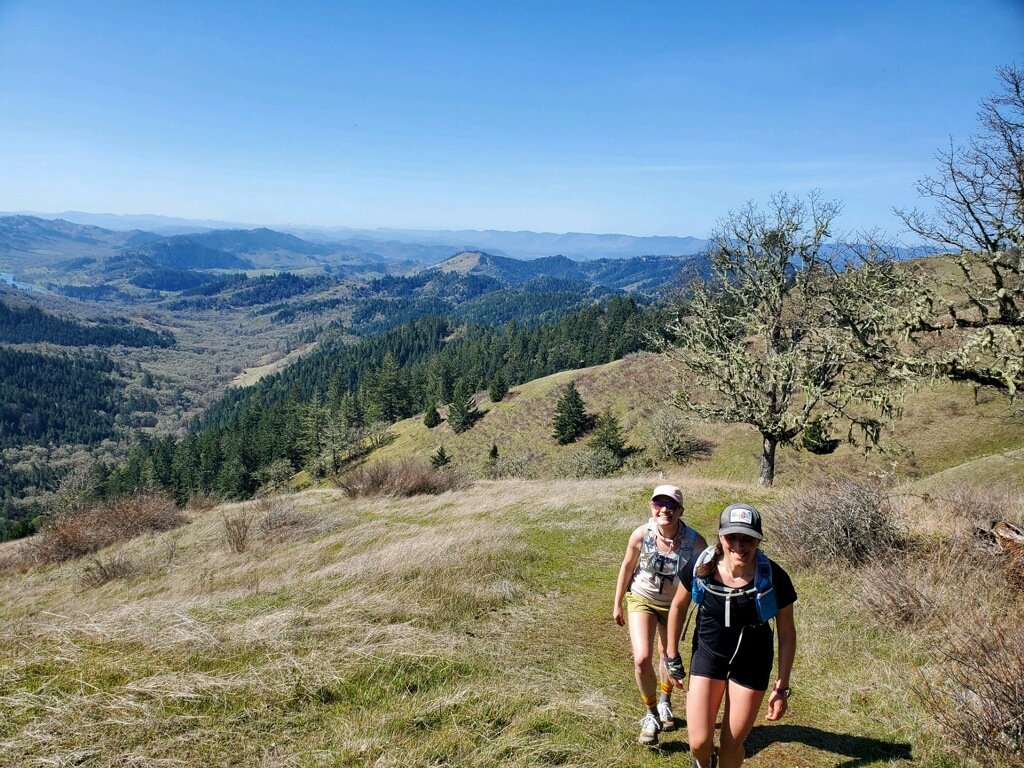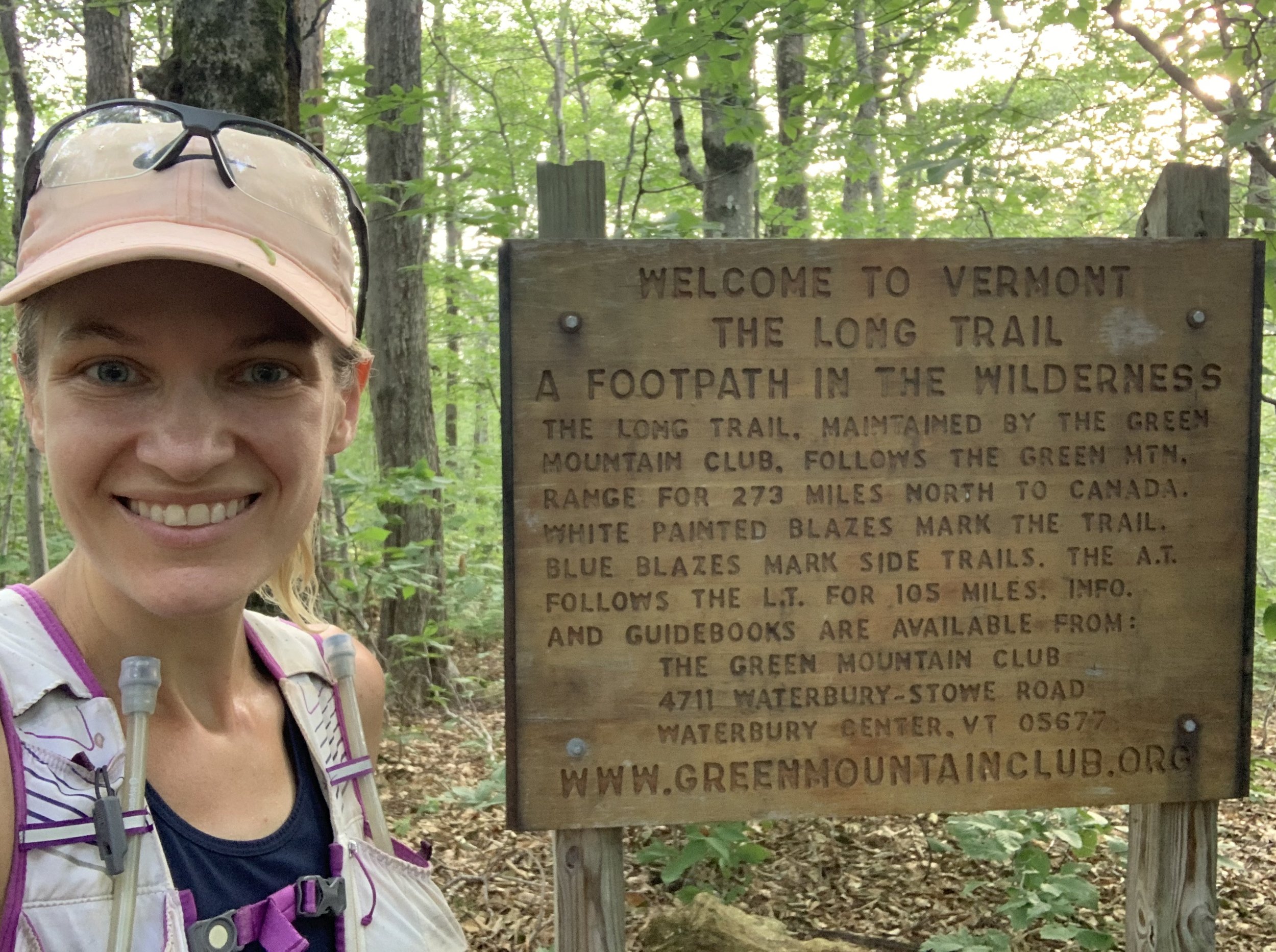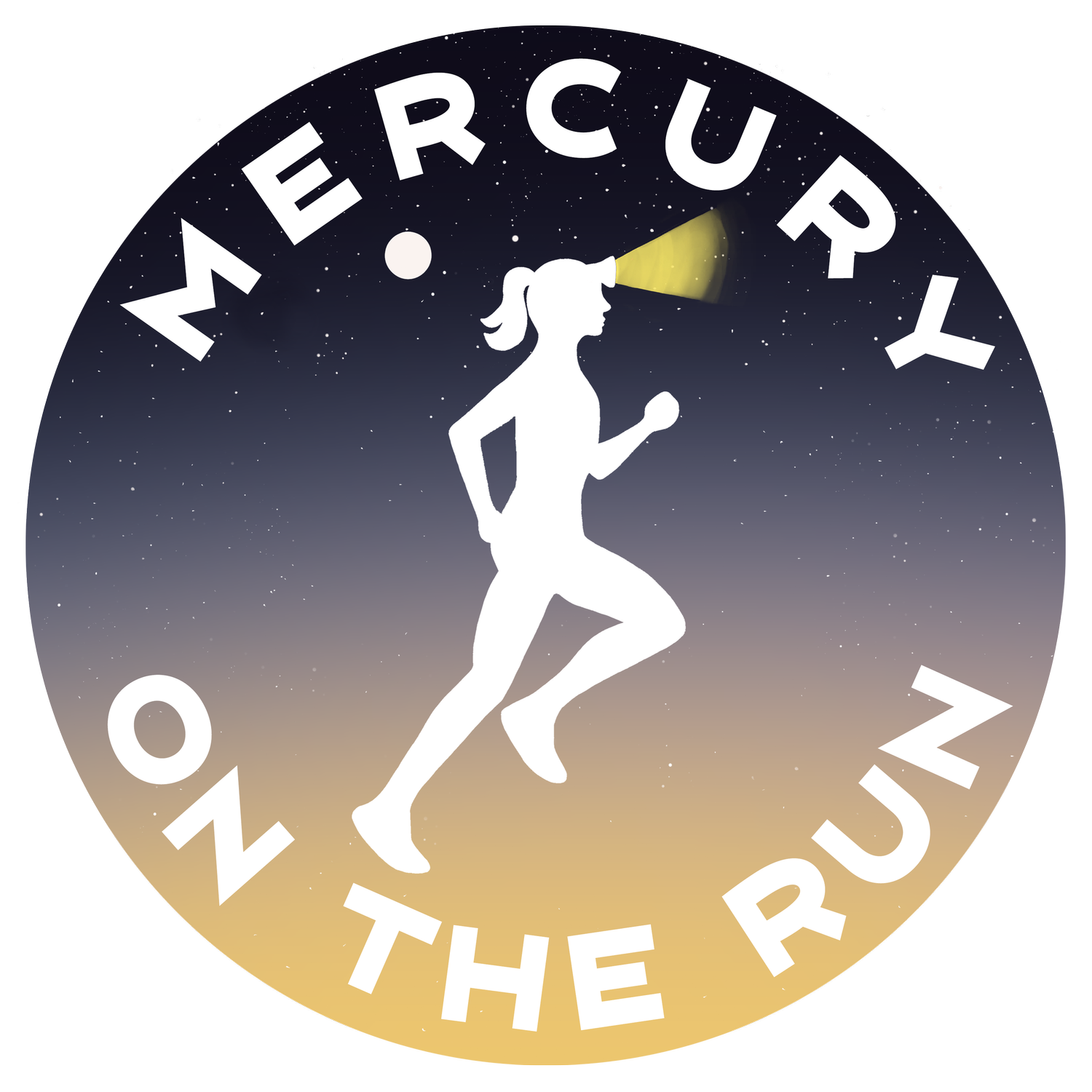Looking Within
As I tend to do, I've been dreaming up possibilities for the future. I feel physically recovered from the Appalachian Trail, though the emotional aftermath still comes and goes like aftershocks following an earthquake. I've run 60ish miles per week for the past 14 weeks with more vertical feet than I've ever covered outside of the AT. I've been building my confidence in my technical trail running and power hiking. This past fall, I went on my second- and third-ever overnight backpacking trips, once solo and once with a friend, to get better acquainted with my gear and learn to be self-sufficient. I've reconnected with some longtime friends and developed some new friendships as well, all through shared miles together.

In the last few months I've started to explore the possibility of doing another thru-hike. Okay, several thru-hikes... but there's one that has particularly piqued my interest as of late. I could be coy about it, but considering this is an exploration of an idea opposed to a definite plan, I'll just say it: I would love to run and hike Vermont's Long Trail. Now, how I would approach this trek is maybe the bigger question.
The Long Trail has a long history. Built between 1910 and 1930, it's the oldest continuous footpath in the US stretching 273 miles from the Massachusetts-Vermont line to the Canadian border. It served as inspiration for the Appalachian Trail, of which it shares 105 miles in the southern part of the state. It also has a storied history of speed records set by trail legends across the years including Jennifer Pharr Davis, Nikki Kimball (there's a great documentary of her trek here), David Horton, Warren Doyle, Jonathan Basham, the list goes on. Recent efforts include those by Joe "Stringbean" McConaughy, Alyssa Godesky, Jeff "Legend" Garmire, and Nika Meyers (you can read her beautifully written trip report here).
I'm drawn to the Long Trail not only for its history, but for its rugged landscape and remarkable beauty. By the time I reached Vermont on the AT last summer, with just shy of 1600 miles already under my belt, I was in pretty rough shape. I was sleep deprived, struggling to take in enough calories, and my feet were in unbearable pain from the cumulative impact of running and walking most hours of the day and night. Despite that, I couldn't help but feel giddy with excitement upon reaching the sign reading "Welcome to the Vermont Long Trail / A Footpath in the Wilderness".

As I continued along over the next few days, I couldn't get over how lush, gorgeous, and green it was. I felt at peace and in my happy place. I took a rare pause from my "relentless forward motion" to take an auto-timed photo (pictured at the top). In that moment in time there was no pain, no record attempt... just still and quiet in the forest.
When I initially thought of the possibility of running and hiking the entire Long Trail, I felt this fluttering of excitement and pulling at my heart strings. Then I thought of the possibility of trying for an FKT and my heart sank a little bit. I don't know if I could do that. What business do I even have thinking of the Long Trail? I suck at running technical trail! Don't you remember the hundreds of roots you tripped and stumbled on all the way from there to Maine? Why would you ever want to do more of that? Why would you think you can do that? And merely moments after entertaining an idea, I was already writing it off as something I couldn't do, or didn't deserve to do because I wasn't confident that I could complete it as quickly, as well, or as athletically as others had in the past.
I caught myself before the negative thoughts spiraled out of control, but it did make me question myself and my motives. Since when did being the best at something, or the possibility of being the best at something, become the criteria for how I choose to spend my time? The answer feels somewhat complicated. I've been running for over half of my life now, and improving as an athlete has been a pretty strong, driving force behind why I get out and move every day. However, it's never come from a place of having to win or beat everyone. Since when was that a reasonable expectation? When I ran a personal record at the 2020 Houston Marathon, I placed 74th out of 2,607 women and was ecstatic about it. On paper, maybe that is not super noteworthy, but for me it represented over ten years of discipline and really hard work. It's an effort I am really proud of.
When contemplating signing up for any given race or event, there are many factors to consider. The distance, location, course, terrain, elevation, and the field. When I look at the women's field an event historically brings in, my hope is always that it's a strong one. Literally all of my best races have happened when there have been many other women to run with or key off of. I would never cherry pick a race based on whether I thought I could win or not (okay, unless maybe prize money was involved). The bigger or deeper the field is, the bigger my chances are of performing well.
Something I particularly love about FKT (Fastest Known Time) culture is the history associated with each route, and particularly the women's history. When women go after something big, it inspires other women to do the same. When we see someone like us achieve something, we think "Well, why couldn't I do that too- or at least try?" When I dismiss myself from even being in contention due to my own narrative of being inherently bad at something (like technical trail running or power hiking), or assume that I would be in contention on my strengths alone (such as raw speed or the ability to get by on very little sleep), it downplays the efforts of the women that have come before me. The beauty of moving from point A to point B as quickly and efficiently as possible is that there is no one road map to doing so, aside from the physical route itself. The commonality is the hard work, planning, strategy, and execution. And yes, playing to one's strengths and working on those weaknesses too.
Jennifer Pharr Davis reminded me before I thru-hiked the AT was that it was my hike. It wasn't Warren Doyle's hike, or David Horton's hike, or her hike. What they learned on the trail and shared with me was invaluable, but it also didn't mean that what worked for them would automatically work for me. Thinking of it that way has made the thought of trying for an FKT on the Long Trail a little less scary, though it doesn't diminish the enormity of the goal or the monumental efforts of others in the past.
What I don't love about the goal of setting an FKT is how black and white it is: you either achieve a fastest known time, or you don't. You're going up against literally everyone in history that has done that exact route. Whereas in racing, there is a chance every year to PR, make the podium, win your age group or win outright, maybe even set a course record... there's a slurry of extrinsically motivating factors opposed to one.
Before I even reached the halfway point on the AT, I had to let go of my goal of breaking Jennifer's AT record. I was too far behind. When Warren and I discussed what to do from there, he presented the option of continuing on at 25 or 35 mile days and finishing on my own sometime in September. That didn't sit right with me. It would have felt unsatisfying, because I knew I could do better. So we continued on, and I hiked long hours every day, reaching Katahdin on August 27th. The motivation to keep going certainly didn't stem from a want of accolades or notability. I didn't think anyone that didn't know me would care at that point. In fact, I couldn't stop feeling as if I'd disappointed everyone. There were many days that I had to stop earlier than planned, or days that I didn't hike as far as I'd hoped to. I felt like I was failing over and over again. In the end, my best was not enough to break Jennifer's record, though it was enough to become the second fastest woman and tenth fastest known person in history to hike the trail. I failed in breaking the women's record, but the journey was worthy to me all the same- not for what it was summed up on paper, but for the entire experience that only I will ever fully know and understand.
When the stakes are all-or-nothing, the chances of failing are pretty high. When you present yourself with a range of goals and expectations, there is a greater chance in reaching at least some of them, and still a slim chance of reaching the goal. When you look deeper into your motivation for those goals and expectations, what do you find? Last summer on the Appalachian Trail I had to ask myself why I was even out there, and the answer was good enough for me to want to keep going.
These are the things I'm pondering when thinking of running and hiking the Long Trail, or really, going for any FKT. I think the first thing is accepting that what you're aiming to do is going to be really, really hard, with a slim margin for error. We want to think everything will go perfectly, but what's the game plan when it doesn't? What's your definition of success and failure? If you do fail, would it be devastating for your ego or self-worth? Or could you accept it, learn from it, and move on?
I recently encouraged the high school cross country team I coach to look at each race as an opportunity to A) learn something new, and B) allow the possibility for something special to happen. My best races have come not only as a result of mixing it up with speedy ladies, but from entering those races in the first place. I ran my 10K PR in the middle of a heavy training segment while preparing for a half marathon, in a race I signed up for just for fun. I ran my marathon PR in a race I tacked onto the end of a training cycle, after feeling unsatisfied with how my actual goal marathon went. In contrast, there are plenty of races I have focused all my efforts toward that went terribly. When I look back on those unexpected races where everything went right, I think, "Thank goodness I gave myself a chance in the first place."
When I think about it this way, the more compelled I feel to keep trying hard things, rather than shy away from them. What happens when you remove the fear of failure and just accept it as a likelihood? What happens when instead of seeking validation from the outside, you look within?
💫
Thanks for reading. If you connected with or felt inspired by my words in some way, please consider buying me a coffee. Your support is appreciated!


